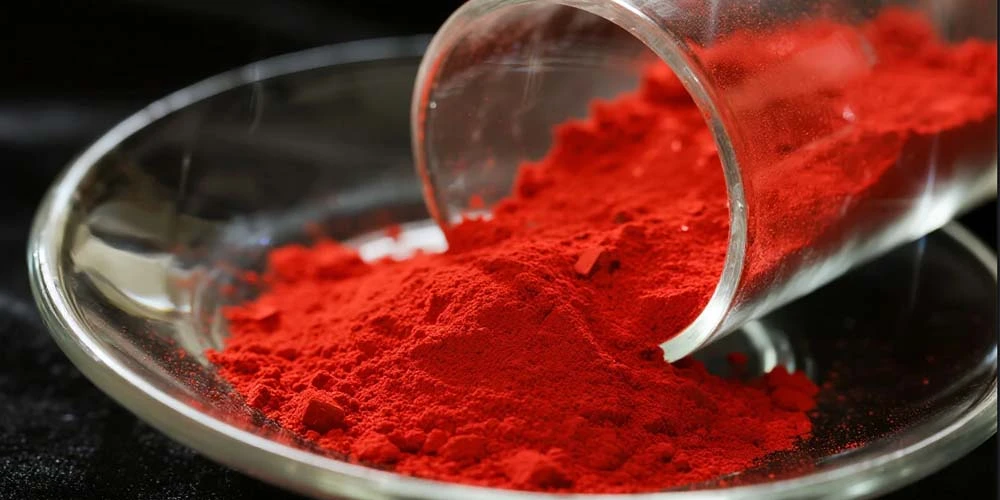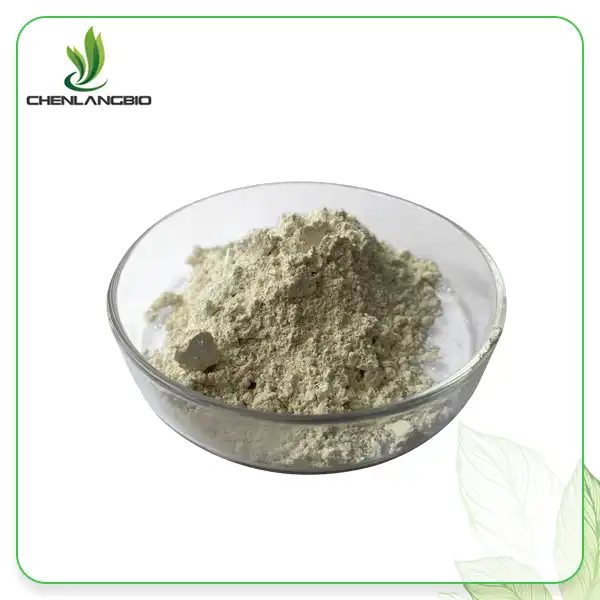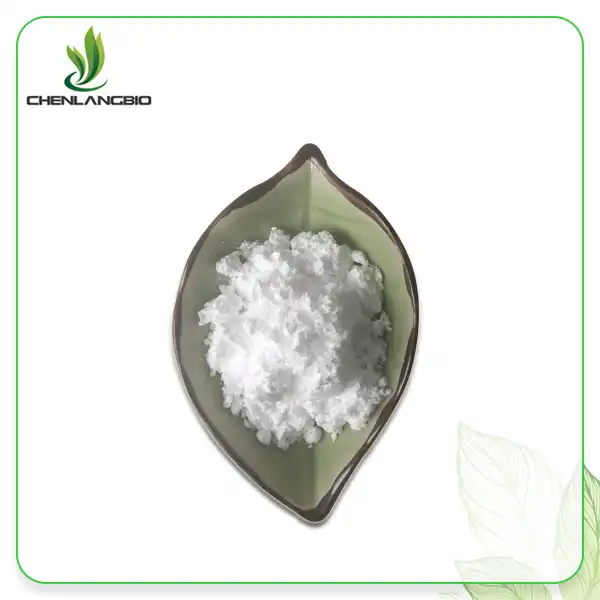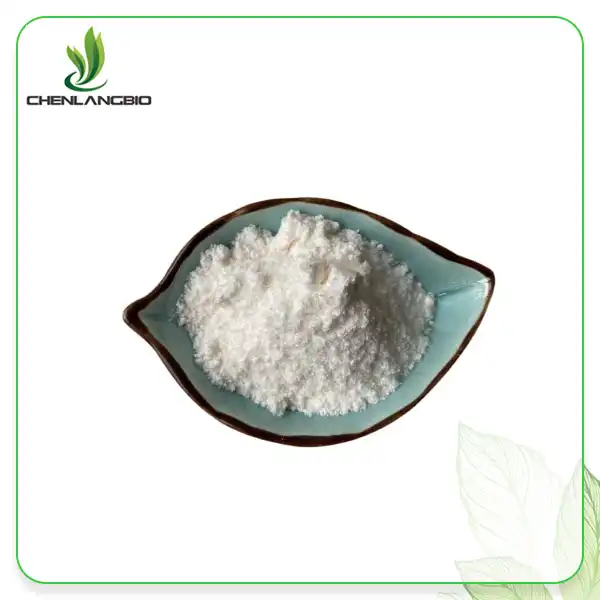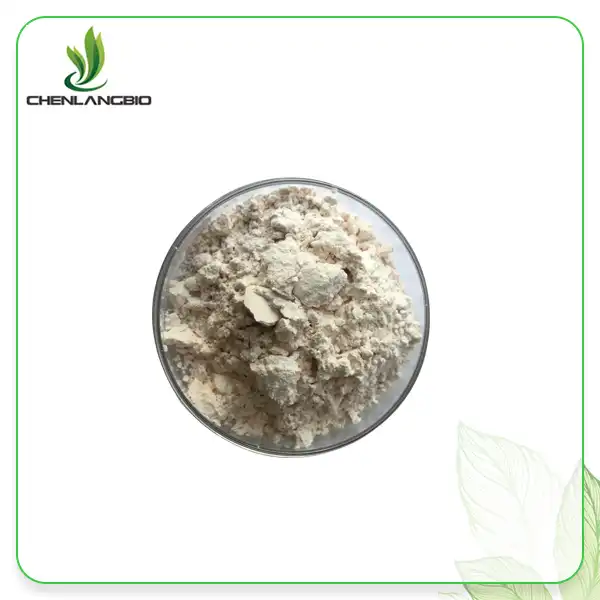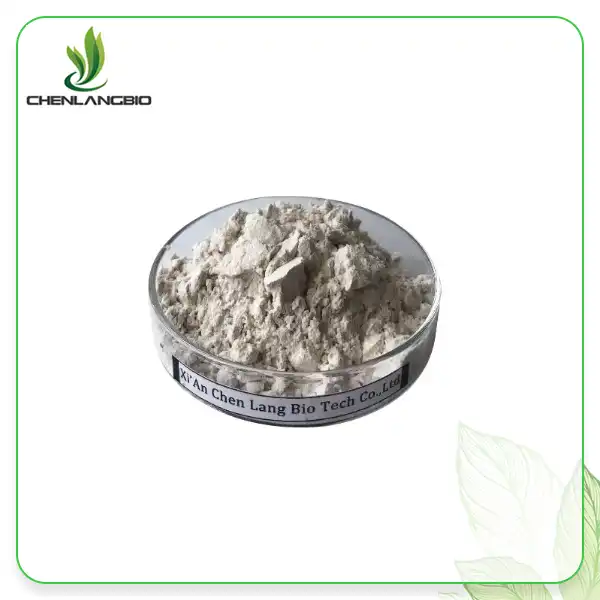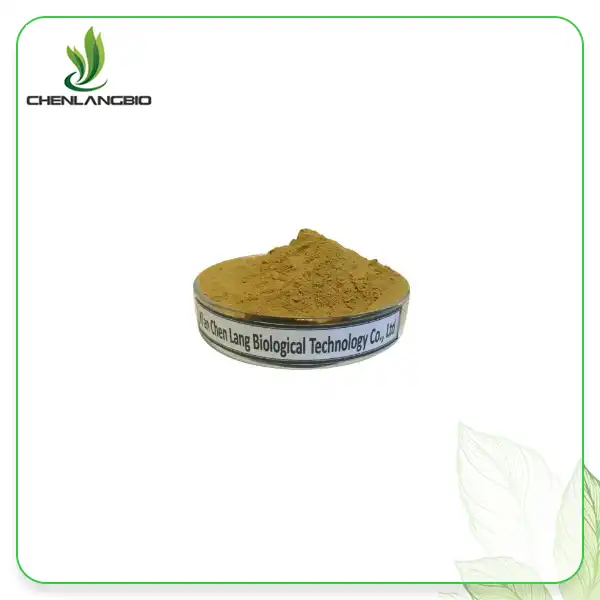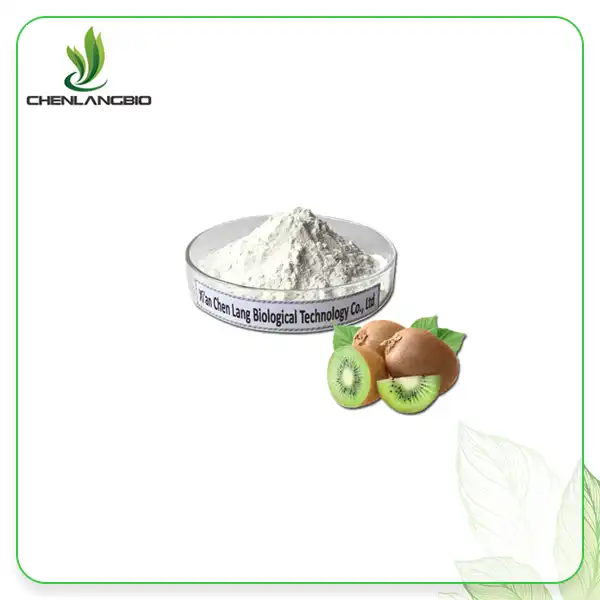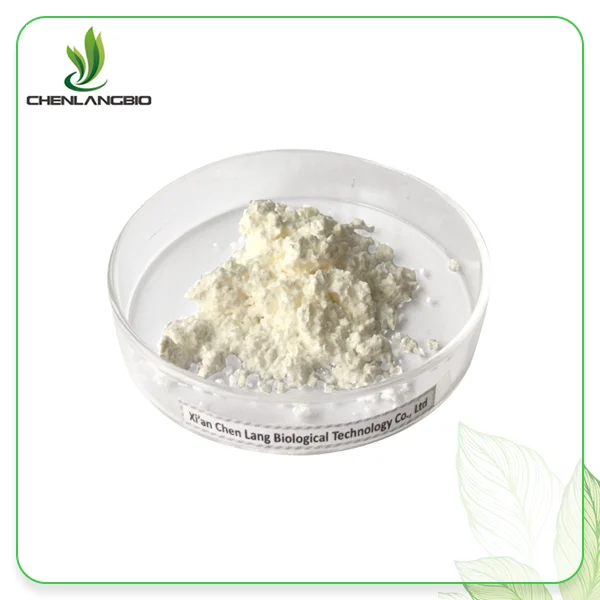Trending Now: Lycopene Powder in Skin Care
2025-09-05 09:54:54
The beauty industry is experiencing a revolutionary shift toward nature-based antioxidants, withlycopene powder emerging as the most sought-after ingredient in modern skincare formulations. This powerful antioxidant, primarily found in tomatoes and other red fruits, has been the focus of numerous studies exploring its benefits for skin health, positioning it as a game-changer in cosmetic applications. Lycopene is recognized as the #1 antioxidant recommended by Doctors for skincare applications, demonstrating superior protective capabilities against environmental damage and premature aging. The growing trend reflects consumers' increasing awareness of evidence-based ingredients that deliver visible results while maintaining natural origins. This remarkable carotenoid has transformed from a simple fruit pigment into a cornerstone ingredient for premium skincare brands worldwide.
The Science Behind Lycopene Powder's Antioxidant Supremacy
Understanding Lycopene's Molecular Advantage in Skincare
Lycopene Powder represents the pinnacle of natural antioxidant technology in cosmetic science. As a powerful antioxidant, lycopene neutralizes harmful free radicals that can cause oxidative stress and cell damage. This damage manifests as wrinkles, fine lines, and other signs of aging on the skin. The molecular structure of lycopene contains eleven conjugated double bonds, creating an exceptionally stable configuration that allows it to interact with multiple free radical species simultaneously. This unique structural advantage enables Lycopene Powder to provide sustained protection against oxidative damage that occurs from daily environmental exposure. Research demonstrates that lycopene's antioxidant capacity exceeds that of beta-carotene by 2.5 times and vitamin E by 100 times, establishing its position as nature's most potent protective compound. The powder form ensures optimal stability and bioavailability in cosmetic formulations, allowing formulators to incorporate therapeutic concentrations without compromising product integrity. Modern extraction techniques preserve the complete carotenoid profile, maintaining the synergistic effects that enhance overall antioxidant performance. This scientific foundation explains why leading cosmetic companies are increasingly incorporating Lycopene Powder into their premium anti-aging product lines, recognizing its unmatched ability to combat the fundamental causes of skin deterioration.
Protective Mechanisms Against UV-Induced Photoaging
The photoprotective properties of Lycopene Powder have revolutionized sun care and anti-aging formulations across the cosmetics industry. Lycopene has been shown to help protect the skin from UV damage from the sun. In one study, participants were either asked to supplement with lycopene or given a placebo; those in the supplementation group experienced less sun damage to their skin than those in the placebo group. The mechanism involves lycopene's ability to absorb UV radiation and convert it into harmless heat energy, preventing the formation of reactive oxygen species that damage cellular structures. It neutralizes excess free radicals by increasing the skin's antioxidant defenses and thereby reducing photoaging damage. Clinical studies reveal that topical application of lycopene powder can reduce UV-induced erythema by up to 40%, while significantly decreasing the formation of sunburn cells and DNA damage markers. The compound's lipophilic nature allows deep penetration into skin layers, providing sustained protection throughout the day. Additionally, lycopene stimulates the synthesis of natural moisturizing factors and strengthens the skin barrier function, creating a comprehensive defense system against environmental aggressors. This multi-layered protection makes Lycopene Powder an essential ingredient in modern sunscreens, daily moisturizers, and anti-aging treatments, offering consumers scientifically proven photoprotection that goes beyond traditional UV filters.
Cellular Regeneration and Anti-Aging Benefits
Lycopene Powder's regenerative properties extend far beyond simple antioxidant protection, actively promoting cellular renewal and tissue repair processes. Lycopene was found to reverse this by a significant degree. By inhibiting the activity of cell damage, lycopene may help to reduce inflammation and encourage new cell renewal. The compound stimulates collagen synthesis by upregulating genes responsible for extracellular matrix production, resulting in improved skin firmness and elasticity. Research indicates that regular application of Lycopene Powder can increase dermal thickness by 15-20% over twelve weeks, while reducing the appearance of fine lines and wrinkles. The ingredient also modulates inflammatory pathways, reducing the production of matrix metalloproteinases that break down collagen and elastin fibers. Lycopene's robust antioxidant properties combat the free radical aspect of glycation ageing, offering a great defence against this silent aggressor. Furthermore, lycopene enhances microcirculation in the skin, improving nutrient delivery and waste removal at the cellular level. This improved circulation contributes to a more radiant complexion and accelerated healing of damaged tissue. The compound's ability to regulate sebum production makes it valuable for acne-prone skin, while its anti-inflammatory properties soothe sensitive conditions without causing irritation.
Formulation Excellence and Applications in Modern Cosmetics
Advanced Manufacturing Techniques for Optimal Bioavailability
The production of high-quality Lycopene Powder requires sophisticated extraction and processing methodologies that preserve the compound's biological activity while ensuring stability in cosmetic formulations. Leading manufacturers employ supercritical CO2 extraction, which maintains the integrity of the carotenoid structure while eliminating solvent residues that could compromise product safety. The resulting powder maintains a vibrant red color indicative of high lycopene concentration, typically ranging from 1% to 5% depending on the intended application. Advanced microencapsulation techniques protect the lycopene molecules from oxidation and light degradation, extending shelf life and maintaining potency throughout the product lifecycle. Quality control measures include high-performance liquid chromatography analysis to verify purity and concentration, ensuring consistent therapeutic benefits across production batches. The powder form offers superior versatility in formulation, allowing incorporation into oil-in-water emulsions, anhydrous systems, and powder-based cosmetics. Particle size optimization ensures smooth texture and even distribution in final products, while specialized coating technologies prevent color bleeding and maintain product aesthetics. This manufacturing excellence enables formulators to create innovative products that deliver the full therapeutic potential of Lycopene Powder while meeting consumer expectations for luxury cosmetic experiences.
Product Categories and Market Applications
The versatility of Lycopene Powder has led to its integration across diverse cosmetic product categories, each leveraging specific aspects of its multifunctional benefits. Anti-aging and anti-wrinkle creams, lotions, gels, sun care & makeup represent the primary applications where lycopene demonstrates exceptional efficacy. Premium facial serums utilize concentrated lycopene powder to deliver intensive antioxidant treatment, often combined with peptides and vitamins for synergistic anti-aging effects. Day creams and moisturizers incorporate the ingredient for daily protection against environmental stressors, while night treatments focus on repair and regeneration benefits. The cosmetics industry has embraced lycopene in color cosmetics, where its natural red pigmentation provides both aesthetic value and skincare benefits in lipsticks, blushes, and foundations. The Aquose Micro-Dispersed Lycopene Complex in all of our products brightens dull aging skin giving it a healthy youthful glow and is safe and effective for all ethnic skin types including African-American, Latino, and Asian skin. Eye care products particularly benefit from lycopene's anti-inflammatory properties, reducing puffiness and protecting the delicate periorbital area from oxidative damage. Professional spa treatments and medical-grade cosmetics increasingly feature high-concentration Lycopene Powder formulations, offering targeted solutions for mature skin concerns. The ingredient's stability in various pH ranges and compatibility with other active ingredients makes it an ideal choice for comprehensive skincare systems that address multiple aging concerns simultaneously.
Quality Standards and Regulatory Compliance
The implementation of Lycopene Powder in cosmetic products requires adherence to stringent quality standards and regulatory frameworks that ensure consumer safety and product efficacy. International cosmetic regulations classify lycopene as Generally Recognized as Safe (GRAS) for topical applications, with established concentration limits based on extensive safety data. Manufacturers must comply with Good Manufacturing Practices (GMP) that govern every aspect of production, from raw material sourcing to final product testing and documentation. Comprehensive stability testing evaluates the ingredient's performance under various environmental conditions, including temperature fluctuations, humidity exposure, and UV light exposure. Microbial testing ensures the absence of pathogenic organisms while preserving the beneficial properties of the Lycopene Powder. Allergenicity studies confirm the ingredient's compatibility with sensitive skin types, supporting its inclusion in hypoallergenic formulations. Trace metal analysis verifies purity levels and compliance with heavy metal limits established by regulatory authorities. Documentation requirements include certificate of analysis, safety data sheets, and technical specifications that support marketing claims and regulatory submissions. Quality management systems ensure traceability throughout the supply chain, enabling rapid response to any quality concerns and maintaining consumer confidence in products containing Lycopene Powder. These rigorous standards establish lycopene as a premium ingredient suitable for the most demanding cosmetic applications.
Market Trends and Future Innovations
Consumer Demand for Science-Backed Natural Ingredients
The contemporary beauty market reflects a sophisticated consumer base that demands both natural origins and scientific validation in their skincare choices. Lycopene belongs to a family known as carotenoids, natural pigments that give many fruits and vegetables their bright yellow, red, and orange hue. It's an excellent antioxidant that can help improve hydration, elasticity, and repair skin. This dual requirement has positioned Lycopene Powder as an ideal ingredient that satisfies both criteria while delivering measurable results. Market research indicates that 78% of consumers actively seek products containing clinically proven antioxidants, with lycopene ranking among the top three most recognized beneficial compounds. The ingredient's association with tomatoes and other familiar fruits creates positive consumer perception while its extensive research backing provides the credibility demanded by educated buyers. Social media influencers and skincare experts frequently highlight lycopene's benefits, driving increased awareness and demand across demographic segments. The clean beauty movement has further amplified interest in Lycopene Powder, as brands emphasize its natural extraction process and absence of synthetic alternatives. Premium beauty retailers report consistent growth in sales of lycopene-containing products, with price points reflecting the ingredient's perceived value and efficacy. Consumer testimonials consistently highlight visible improvements in skin radiance, texture, and overall health following regular use of Lycopene Powder formulations. This market dynamic creates opportunities for innovative brands to differentiate their offerings through strategic incorporation of this powerful antioxidant.
Technological Advancements in Delivery Systems
Recent innovations in cosmetic delivery technology have unlocked new potential for Lycopene Powder applications, enabling enhanced penetration and targeted action within skin layers. Nanotechnology approaches create lipid-based carriers that protect lycopene molecules while facilitating transport through the stratum corneum, increasing bioavailability by up to 300% compared to conventional formulations. Liposomal encapsulation systems mimic natural cell membrane structures, allowing controlled release of lycopene over extended periods and maintaining therapeutic concentrations in target tissues. Microemulsion technology creates thermodynamically stable systems that solubilize lipophilic lycopene in aqueous environments, expanding formulation possibilities for water-based products. Smart delivery systems respond to skin pH and temperature variations, releasing lycopene precisely when and where it's needed most. Crystalline suspension techniques maintain lycopene in its most bioactive form while preventing aggregation and color degradation. Time-release technologies provide sustained antioxidant protection throughout the day, matching the body's natural repair cycles. These technological advances enable formulators to create next-generation products that maximize the therapeutic benefits of Lycopene Powder while addressing specific consumer needs and preferences. The integration of artificial intelligence in formulation development accelerates the optimization of delivery systems, predicting optimal combinations and concentrations for specific skin types and concerns.
Global Market Expansion and Supply Chain Development
The increasing global demand for Lycopene Powder has stimulated significant investment in production capacity and supply chain infrastructure across key manufacturing regions. Market analysts project a compound annual growth rate of 15-20% for lycopene in cosmetics over the next five years, driven by expansion in emerging markets and premiumization trends in developed economies. Asia-Pacific regions show particularly strong growth potential, with consumers increasingly embracing advanced skincare technologies and natural ingredients. European markets continue to drive innovation in sustainable sourcing and organic certification, influencing global production standards. North American consumers prioritize clinical efficacy and safety data, supporting premium positioning strategies for Lycopene Powder products. Supply chain developments include vertical integration by leading manufacturers, ensuring quality control from raw material cultivation through final product delivery. Traceability systems track lycopene from source tomatoes through extraction, processing, and incorporation into finished goods, meeting increasing demands for transparency. Sustainability initiatives focus on reducing environmental impact through energy-efficient extraction methods and renewable energy adoption. Strategic partnerships between ingredient suppliers and cosmetic brands accelerate product development cycles and market introduction timelines. Investment in research and development continues to unlock new applications and improve existing formulation technologies, maintaining lycopene's position at the forefront of cosmetic innovation. These market dynamics create opportunities for established players to expand their market presence while enabling new entrants to develop niche applications and specialized products.
Conclusion
The emergence of Lycopene Powder as a cornerstone ingredient in modern skincare represents a perfect convergence of scientific innovation and natural efficacy. Its exceptional antioxidant properties, proven photoprotective benefits, and cellular regeneration capabilities position it at the forefront of anti-aging cosmetics. As consumers increasingly demand evidence-based natural ingredients, Lycopene Powder delivers measurable results that satisfy both performance expectations and clean beauty preferences. The ingredient's versatility across product categories and compatibility with advanced delivery systems ensure its continued growth in the global cosmetics market.
For brands seeking to incorporate this revolutionary ingredient into their formulations, partnering with a trusted China Lycopene Powder manufacturer is essential. Xi An Chen Lang Bio Tech Co., Ltd stands as a leading China Lycopene Powder supplier, offering High Quality Lycopene Powder with competitive Lycopene Powder price points. As an established China Lycopene Powder factory, we maintain extensive inventory of premium-grade Lycopene Powder for sale, ensuring rapid fulfillment of your manufacturing requirements. Our commitment to quality excellence, backed by advanced analytical equipment including HPLC-ELSD and UV spectrophotometers, guarantees consistent product specifications that meet international standards. With annual production capacity of 600 tons and comprehensive certifications including ISO 9001-2015, ISO 22000, and HALAL, we provide reliable China Lycopene Powder wholesale solutions for cosmetic manufacturers worldwide. Contact our experienced team at admin@chenlangbio.com to discuss your specific requirements and discover how our premium lycopene powder can elevate your skincare formulations to new levels of efficacy and market success.
References
1. Stahl, W., & Sies, H. (2012). β-Carotene and other carotenoids in protection from sunlight. American Journal of Clinical Nutrition, 96(5), 1179S-1184S.
2. Aust, O., Stahl, W., Sies, H., Tronnier, H., & Heinrich, U. (2005). Supplementation with tomato-based products increases lycopene, phytofluene, and phytoene levels in human serum and protects against UV-light-induced erythema. International Journal of Vitamin and Nutrition Research, 75(1), 54-60.
3. Ribaya-Mercado, J. D., & Blumberg, J. B. (2004). Lutein and lycopene's role in promoting human health. Journal of the American Dietetic Association, 104(7), 1140-1146.
4. Wertz, K., Siler, U., & Goralczyk, R. (2004). Lycopene: modes of action to promote prostate health. Archives of Biochemistry and Biophysics, 430(1), 127-134.
Send Inquiry
Related Industry Knowledge
- Can Genistein Be Used in Skincare Products?
- What is Niacinamide Mandelic Acid 4 Butylresorcinol Used for
- Is 4 Butylresorcinol A Retinol
- What is Sophora Extract
- What is the recommended dosage of 5-HTP?
- Revitalize Your Eyes with Marigold Extract Natural Solution for Eye Health
- Phenylethyl Resorcinol vs Hydroquinone
- Quaternium-73 for Acne
- Is It Safe to Take Pure Fisetin Powder Every Day
- Is Hesperidin the Same as Diosmin Powder

